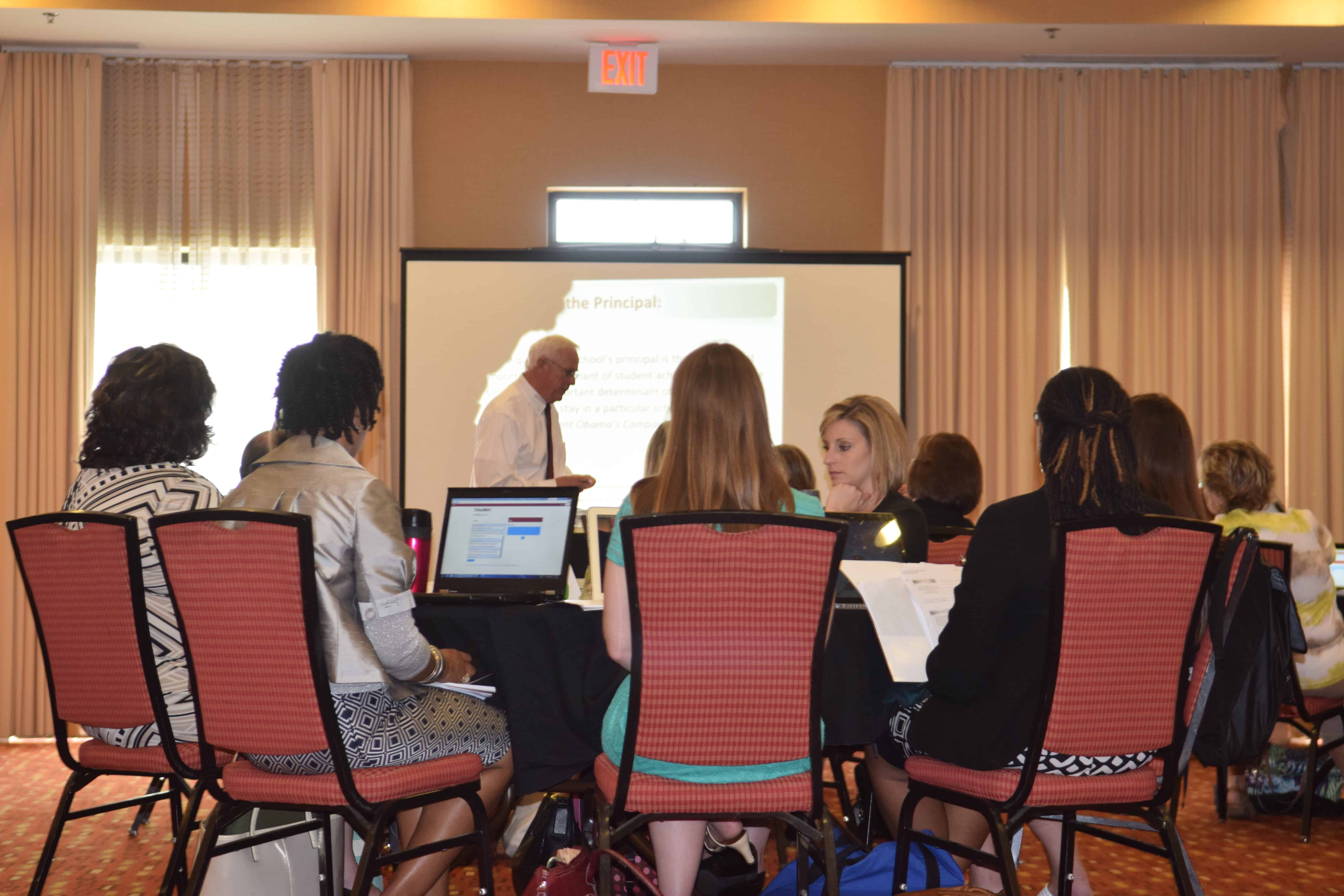SCENE ONE: A conference room in the UNC Center for School Leadership Development, where several high school principals had gathered under the auspices of the Principals’ Executive Program.
I had been invited to brief the principals on the report of Gov. Mike Easley’s Education First Task Force, of which I was a member. That 2002 report, looking back on it, served as a spring board for high school innovations that have played out over the past decade.
At the time, however, the principals gathered in Chapel Hill saw it through the prism of their already demanding job. Didn’t I know, they asked, that they had a difficult enough job without new intrusions from state government? Actually, I found the give-and-take instructive, but the Principals’ Executive Program (PEP) leader telephoned me that evening to apologize for what she considered rude treatment by the principals.
SCENE TWO: A meeting room in The Carolina Inn, where state policymakers and UNC faculty met over dinner with invited public school teachers from across the state.
This gathering was one of a series that Tom James, then dean of the UNC School of Education, and I, as director of the UNC Program on Public Life, convened to inform state education policy.
I don’t have notes by which to quote what the teachers said. But the session stands out in my memory for the electricity it generated as teacher after teacher described a tense and fractious relationship with her school’s principal. I left the session worrying about a teacher-principal rupture as an impediment to improving schools.
It’s possible, of course, that the principals at the PEP session and the teachers at the Carolina education roundtable spoke for themselves, not all principals and teachers. They may not have been a representative sample. Still, the intensity of the conversation at both sessions alerted me to the need for North Carolina to pay special attention to the critical role of principals as leaders in its public schools.
The General Assembly has under consideration companion bills with the title “Excellence in School Leadership.” Though the details differ, both House and Senate versions would provide a 3 percent pay raise for principals, along with a bonus for improvement in school performance. Both bills also commission the Joint Legislative Education Oversight Committee to study and make recommendations to attract and retain high-quality principals and assistant principals.
“There seems little doubt that both district and school leadership provides a critical bridge between most educational-reform initiatives, and having those reforms make a genuine difference for all students.”
If lawmakers are serious about improving schools through enhancing educational leadership, they will design the oversight committee’s work as more than the typical small-s legislative study and convert it into a big-I Principals’ Leadership Initiative.
“There seems little doubt that both district and school leadership provides a critical bridge between most educational-reform initiatives, and having those reforms make a genuine difference for all students,” says a new report commissioned by The Wallace Foundation. “…Efforts to improve their recruitment, training, evaluation and ongoing development should be considered highly cost-effective approaches to successful school improvement.”
The Wallace Foundation, a New York-based philanthropy established by the founders of Reader’s Digest, offers legislators a repository of research that could help guide a North Carolina initiative. Its new report makes the same point as the preamble to the House and Senate bills: that leadership is second only to what teachers do in the classroom as school-based factors in boosting student learning.
The Wallace report goes on to emphasize a second crucial point: that leadership matters most in distressed, underperforming schools. “Indeed, there are virtually no documented instances of troubled schools being turned around without intervention by a powerful leader,” says the report.
In North Carolina, PEP was dissolved a while back. Now, the NC Principals and Assistant Principals Association (NCPAPA) conducts Distinguished Leadership in Practice training, funded through a federal Race to the Top grant. That grant will come to an end, but North Carolina needs more intense, sustained initiatives to assure a steady supply of high-quality school leaders – leadership training before taking on a principal’s job and continuing enrichment in the job.
“It’s not all about preparation,” says Shirley Prince, executive director of NCPAPA. “It’s what happens when they get their school.”
The 2014 Teacher Working Condition survey suggests a less contentious atmosphere than I encountered in those discussions a decade ago. About three out of four North Carolina teachers agreed – 23 percent strongly agreed – with the statement that “there is an atmosphere of trust and mutual respect in this school.” Still, a sizeable minority of one-fourth of teachers disagreed.
Asked “which aspect of your teaching conditions most affects your willingness to keep teaching at your school?” 30 percent of North Carolina teachers cited “school leadership.’’ That factor led the list by far.
No time is better than now for a major Principals’ Leadership Initiative.



